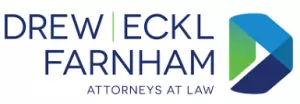- within Food, Drugs, Healthcare and Life Sciences topic(s)
The Legislature made no statutory changes to the Workers Compensation Act in 2025. However, effective July 1, 2025, the Georgia State Board of Workers' Compensation (SBWC) has introduced several important updates to its rules. These changes include clarifications, organizational edits, and substantive revisions aimed at improving consistency and transparency in the workers' compensation process.
Below is a quick overview of the most notable amendments:
Attorney Fees on Medical Expenses (Rules 15(e) and 108(b)(8))
Under the new rules, attorneys may request fees on
medical expenses in limited circumstances, even when
income benefits are no longer being paid.
To do this, attorneys must petition the Board for a quantum
meruit fee, which is a fee based on the value of the legal
services provided. This applies particularly to cases where medical
and non-indemnity issues remain after income benefits end.
Compensation Memorandum for No-Liability Settlements (Rule 15(o))
The familiar "throw-away sheet" used in no-liability settlements has been replaced with a more formal Compensation Memorandum.
This new document must:
- Include specific information about the settlement (e.g., payment breakdown, responsibility for medical bills)
- Be signed by all parties to the settlement before submission
This change promotes transparency and consistency in settlement documentation.
Consistent Timeline for Objections in Rehab Cases (Rules 61(b)(54) and 200.1(II)(H)(3))
Previously, there was confusion over how much time parties had to file objections related to rehabilitation services. The rules now align both timelines:
- Objections to rehab supplier changes must be filed
within 20 days, not 15.
This change ensures consistency and gives parties a clear and fair window to respond.
Email Delivery of Awards and Orders (Rule 102(E)(7))
To modernize communication, the Board now explicitly allows awards and orders to be sent by email to parties and attorneys of record. If email isn't available, the default will still be U.S. mail.
This update reflects the growing role of digital communication in legal processes.
Final Thoughts
These 2025 rule changes are designed to streamline procedures, clarify responsibilities, and modernize communication. If you're involved in workers' compensation matters in Georgia—whether as an attorney, claims professional, or employer—it's important to understand how these revisions may impact your practice.
The content of this article is intended to provide a general guide to the subject matter. Specialist advice should be sought about your specific circumstances.


